Qingming Festival 2025: What happens on Tomb Sweeping Day
By: Written by Ruby Zhao

Qingming Festival 2025: What happens on Tomb Sweeping Day
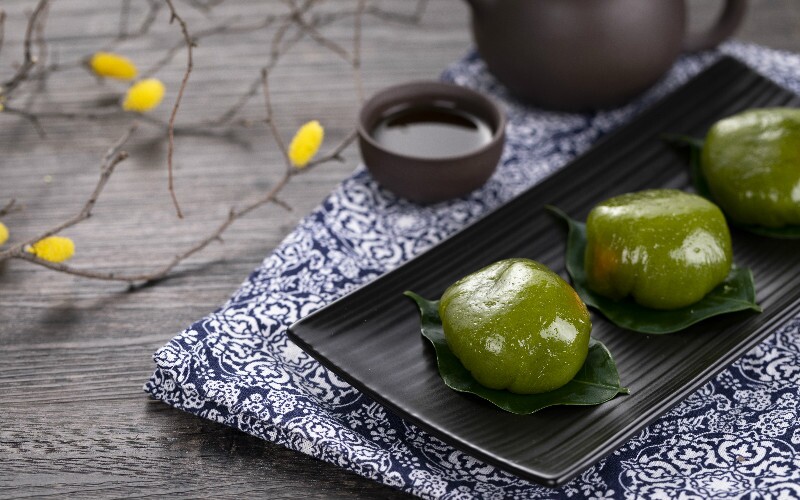
Qingming Festival (清明节) is one of the most important traditional festivals in China. It falls on April 4th or 5th. In 2025, Qingming Festival falls on April 4th, when most Chinese people will enjoy a public holiday.
Qingming Festival is also called Tomb Sweeping Day as it is the time for Chinese people to show respect to their ancestors by cleaning their ancestors' tombs and placing offerings.
In addition, Qingming (清明) in Chinese mean 'clearness' and 'brightness' . It is the fifth of the 24 solar terms of the traditional Chinese solar calendar, marking the start of the warm weather of spring and the beginning of farm work.
How Do Chinese Celebrate the Qingming Festival? (Not Just Tomb Sweeping)

Visit Guilin in Spring
There are various activities for Qingming Festival. The most popular ones, such as tomb upkeep and repair, spring outings, kite flying, and putting willow branches on gates, have been an important part of this festival since its beginning.
Tomb Sweeping — the Most Important Custom of Qingming Festival
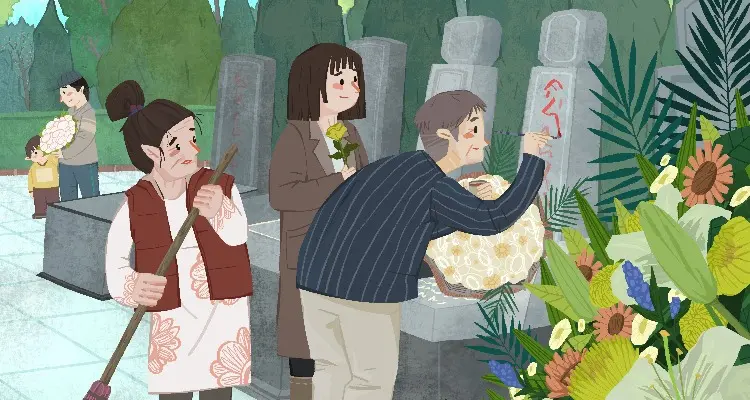
Tomb Sweeping
People commemorate and show respect to their ancestors by visiting their graves, and offering their spirits food, tea or wine, burning incense, burning or offering joss paper (representing money), etc. They sweep the tombs, remove weeds, and add fresh soil to the graves. They might plant willow branches, flowers, or plastic plants on the tombs.
They pray before their ancestors' graves and beseech them to bless their families. However, the custom has been greatly simplified today, especially in cities, where many people only place flowers to remember their dead relatives. Because of their busy work and being far from their family homes, many young people now cannot conduct tomb sweeping in person, and online tomb-sweeping ceremonies now take place in many cities.
With different times observed regionally, ethnically, and even locally to do tomb sweeping in China, the custom mainly happens sometime during the 10 days before or after the day of Qingming Festival.
Things Not to Do When Tomb Sweeping
- Don't take photos in cemeteries (or in other tomb areas), as this is considered disrespectful and a bringer of bad luck.
- Don't sweep tombs after 3pm as it is believed to be inauspicious.
- Don't wear clothes with bright colors or skimpy clothes.
- Don't reverse the order of sacrifice. The right order is as follows: renovate the tomb, offer incense and sacrifices, toast the deceased, and finally kowtow or bow in worship.
- Don't eat or laugh loudly when performing the rituals, as this is considered disrespectful.
- Don't visit friends and relatives on Tomb Sweeping Day as it is a special day for commemorating the departed.
- Do not participate in others' grave sweeping as it will bring bad luck.
Putting Willow Branches on Gates
During the Qingming Festival, some people wear soft willow branches and place the branches on gates and front doors. People believe that this custom will ward off wandering evil spirits during Qingming.
That willows are considered magical is mainly a Buddhist influence. Traditional pictures of the Goddess of Mercy Guanyin often show her seated on a rock with a willow branch in a vase of water at her side. The goddess used this mysterious water and branch to scare away demons.
According to historical records, there is an old saying: 'Put willow branches up on gates; drive ghosts away from houses.'
Spring Outings and Kite Flying
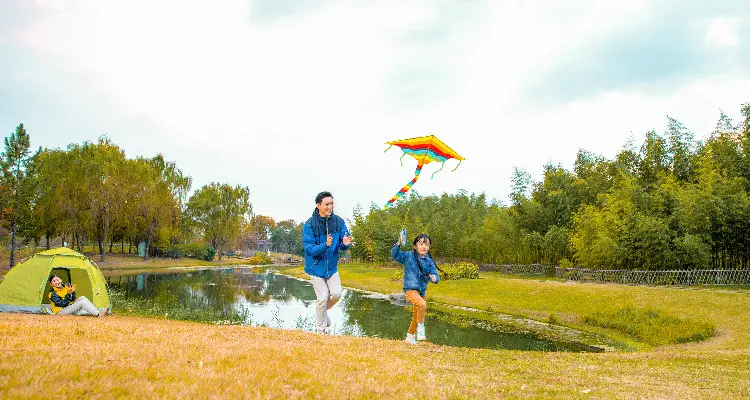
The Qingming Festival is a good time to feel the breath of spring.
Qingming is also called Taqing Festival. Taqing (踏青 /taa-ching/ 'tread green') means a spring outing, when people get out and enjoy the spring blossoms. The festival usually falls on a day not long before everything turns green in the north, and well into the spring flower season in the south.
It marks the weather warming up, when people spend more time outside. Flying kites is for relaxation on this holiday, and to some it means getting rid of misfortune.
Is it Proper to Say "Happy Qingming Festival"?
Unlike the Day of the Dead in Mexico, which is filled with great joy, the Qingming Festival is primarily associated with showing respect for departed spirits and making sacrifices. Therefore, it is not suitable to greet others with words like "happy," "joyful," "merry," and so on.
To greet others without offense on Qingming day, it is better and more polite to say:
- Wishing you all best for Qingming Festival. (清明安好)
- Wishing you health and safety for Qingming Festival. (清明健康平安)
What Are Traditional Foods for Qingming Festival?
Different places have different foods for Qingming Festival. The traditional Qingming festival foods include sweet green rice balls, crispy cakes, Qingming Zong. These foods are usually cooked one or two days before the arrival of the Qingming Festival so people can eat and recreate during the holidays.
Sweet Green Rice Balls
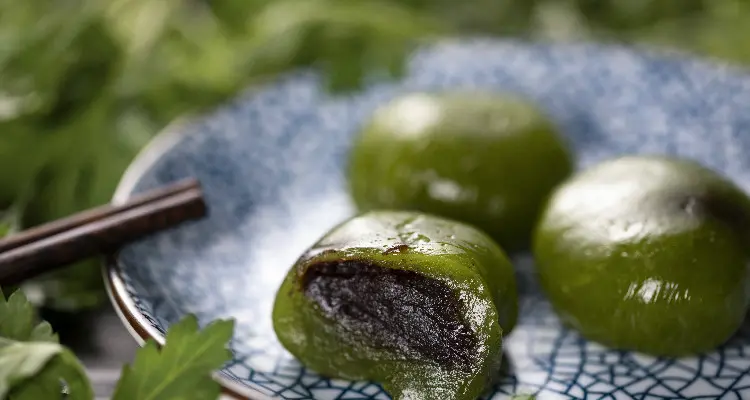
Qingming Festival Food
Sweet Green Rice Balls (青团 qngtuan /ching-twann/ 'green dumpling(s)') are a popular Qingming food that are made of a mixture of glutinous rice powder and green vegetable juice and stuffed with sweetened bean paste. Sweet green rice balls are jade-green in color, glutinous in taste, and sweet in aroma.
Qingming Cakes
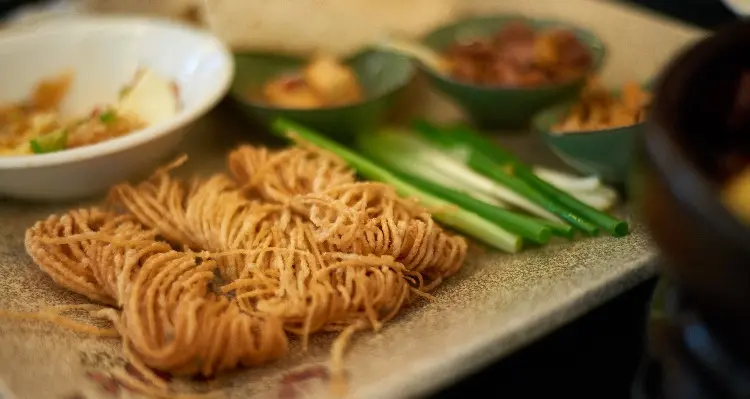
Qingming cakes are called sazi (撒子szi /saa-dzuh/ [phonetic]) or hanju (寒具 hanju /han-jyoo/ 'cold tools'). They are a crispy fried food that are made of wheat flour or glutinous rice flour, eggs, sesame, onion, salt, and other ingredients.
Among some Chinese ethnic minorities, such as the Uygur in Xinjiang, the Dongxiang in Gansu, the Naxi in Yunnan, and the Hui in Ningxia, sazi is famed for its great variety and many flavors.
Qingming Zong (Rice Dumplings)
Rice dumplings are not only for Dragon Boat Festival. In fact, they have become popular as a take-out food. Zongzi are sticky rice dumplings filled with pork, chestnut, and red beans (sometimes this varies), and wrapped in bamboo leaves. They are also commonly used and eaten at Qingming Festival , as they are very convenient for offering and taking on spring outings.
Why is Qingming Festival Celebrated?
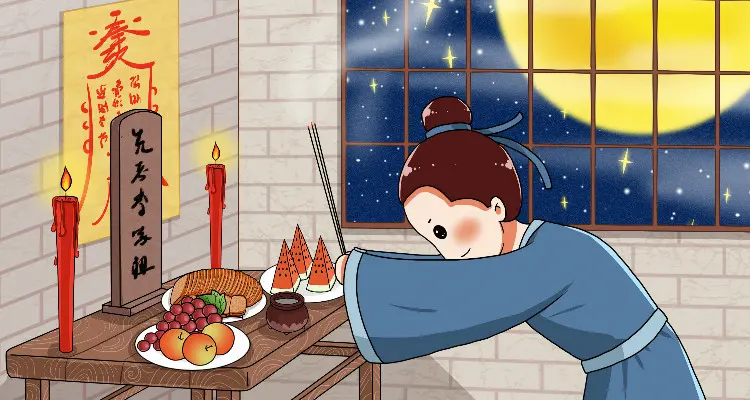
Offer Sacrifices to Ancestors
There is a legend about the origin of the Qingming Festival relating to a mountain near Pingyao Ancient Town called Mianshan.
Mian Mountain is also called Jieshan ('Jie Mountain') after Jie Zitui (?-636 BC). He protected the prince of the State of Jin, Chong'er, who went into exile due to civil unrest and persecution in 655 BC.
In the face of hunger and cold on the way, when Prince Chong'er was about to starve to death, Jie Zitui cut a piece of flesh off his thigh to cook a meat soup .
Nineteen years later, in 636 BC, Prince Chong'er took power and became a king as Duke Wen of Jin State (697-628 BC) . Duke Wen greatly rewarded and honored all of his followers, but he forgot Jie Zitui. Meanwhile, Jie had lived in seclusion with his mother on Mian Mountain. The duke felt ashamed and decided to find Jie.
As it was difficult to find a person in the mountains, a malicious subject who was jealous of Jie suggested setting fire to the mountain to flush him out. After the fire, the duke and his people found the two burned bodies of Jie and his mother on the mountain.
The duke regretted this deeply, and designated the day as 'Cold Food Festival'. It was the day before Qingming Festival. In order to commemorate Jie, people ate cold food and banned fire on that day. And so, the Qingming cold food tradition lived on with this legend.
As time passed, the two festivals were gradually combined into one. On the day of the Cold Food Festival, people used no fire and only ate cold food. Now people in some places still have the custom of eating cold food on Qingming Festival.
The administrator of this group reserves the right, along with the site moderators, to moderate all and any postings to this group, including the right to enforce the ToS, the CoC, and also including anything that the administrator deems within his sole discretion to be offensive, including and not limited to off topic or 'no value' comments, with the power to delete in exercising those rights.
It would be best, therefore, to be civil in posting on this group.
By now it should be well known that I am unable to open certain sources, videos and pictures. If I cannot, I will ask that they be described and explained. If the poster refuses to comply, their comment will be deleted. Instagrams are banned.


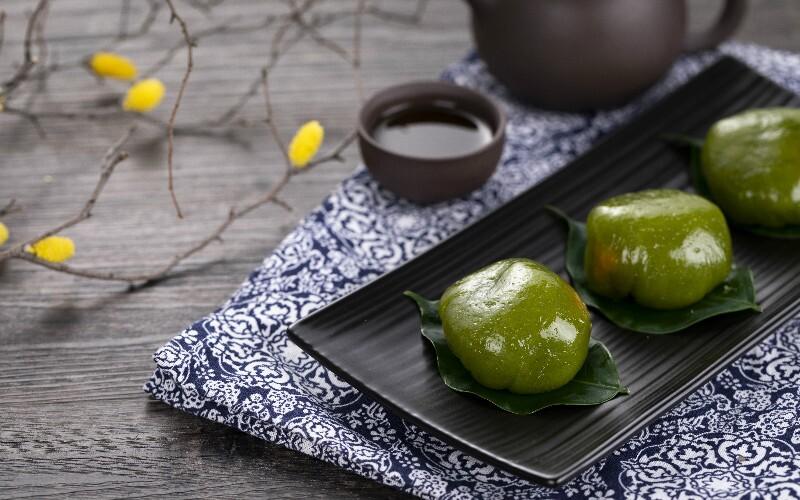




My wife has aleady gone to her ''home-town'' area of the Chongqing Municipaliy in order to sweep the graves of her mother and father.
You absolutely MUST watch and listen to this beautiful and poetic short video in celebration of Qing Ming Jie (Tomb Sweeping Day).
Click on the link below, and then click on the arrow in the middle of the image. Use your speakers or headphones.
LINK -> Qingming: Honor the past and welcome the new - Chinadaily.com.cn
Great history and the video was just beautiful.
And those sweet green rice balls are heavenly as well.
I wish others could experience the joy and benefits of awareness of, if not actually taking part in, the festive celebrations of other's cultures.